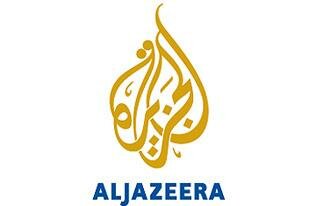Al-Jazeera – Real News or Political Pawn?
As the world turns to the Arabic network for the latest on the revolutions in the Middle East, it’s a good time to ask: just how objective is the channel?

Initially launched as an Arabic news and current affairs satellite TV channel, al-Jazeera has since expanded into a broad network including the Internet and TV channels in multiple languages.
Founded in 1996, al-Jazeera received a $147 million loan from the Emir of Qatar, where the channel is based, to fund its start-up. It has struggled financially ever since but has always received generous support from the Emir of Qatar.
Qatar, whose sovereign wealth fund reportedly has as much as $100 billion in assets under management, is hardly losing sleep over the profitability of al-Jazeera. According to Zubair Iqbal of the Middle East Institute, al-Jazeera is funded “essentially for strategic reasons. Qatar has ambitions to become a major player in the region… I don’t think they are interested in making money [on the network].”
Qatar has ambitions to become a major player in the region.
One way to gain a more global audience, Iqbal says, is for Qatar to back a channel that has many critics in Arab capitals – to underscore the differences between Qatar’s more liberal society versus its rivals in Saudi Arabia and elsewhere. The strategy appears to be working, now that al-Jazeera is more popular than ever. (Source: https://srph.it/hzIQEW)
Qatar has always claimed that al-Jazeera was independent of the Qatari government. But a WikiLeaks cable alleges otherwise.
Qatar used al-Jazeera as a diplomatic bargaining chip, U.S. elements claimed in a cable leaked by the WikiLeaks website. Britain’s Guardian newspaper reported that in a cable sent in November 2009, U.S. representatives in Doha claimed that the network slanted the nature of reports in order to improve relations with many countries including Saudi Arabia and the United States.
Opportunist in “Egypt revolution”
Although al-Jazeera now faces rivals, including the Saudi-backed al-Arabiya, the channel that first gave voice to dissidents in the region revelled in reporting the demise of Tunisia’s leader, Zein al-Abidine Ben Ali.
Yet, when the flame lit by Tunisia reached Egypt, a country with which Qatar has only recently made up after a diplomatic row, and where events are more likely to affect the rest of the region, al-Jazeera’s first days of coverage appeared restrained, drawing consternation from some ¬observers.
Coverage of Egypt's “day of rage” was relatively moderate compared with al-Jazeera’s handling of the revolt in Tunisia. This perhaps reflected, as commentators say, Qatar’s own concern at the fall of one of the region’s most stable regimes and the subsequent domino effect on the Middle East.
It would be another three days before al-Jazeera seemed to be back on form, devoting continuous coverage and graphic images of overturned vehicles in Cairo and Suez, as Egypt’s turmoil escalated. The Egypt story had become too big.
Al-Jazeera then called on the Egyptian authorities to allow it to freely cover events, as its live channel was removed from the Nilesat platform from which the public receives television channels. That day alone, the station’s website, saw a 25-fold increase in traffic on Friday, with more than 50% of the spike coming from the U.S. alone.
Mahmud Shammam, editor of Arabic Foreign Policy magazine and a former board member at the channel, commenting on the station’s coverage, says: “This is the first time al-Jazeera was under pressure from citizen journalists and social media to cover the events, not the other way round.”
“Though most of those working in al-Jazeera are hostile to the Egyptian regime, Arab governments do not want a hasty change in Egypt and it is reflected in their coverage,” says Hassan al-Mostafa, a media observer and blogger.
“In general, coverage is heavily packaged in an Islamic or nationalist ideology, especially in Tunisia, Palestine and Lebanon, but in Egypt they were more careful. They want to weaken the regime, but not destroy it.’’
“Lopsided and selective”
Domestically, al-Jazeera has been criticised for failing to report on many hard-hitting news stories that originate from Qatar, where the channel is based. The two most frequently cited stories were the revoking of citizenship from the al-Ghafran clan of the al-Murrah tribe, in response to a failed coup that members of the clan were implicated in, and Qatar’s growing relations with and diplomatic visits to Israel. (Source: https://secretdubai.blogspot.com/2005/04/into-exile.html)
Jeb Koogler echoes this sentiment in his blog “The Progressive Realist”, in which he asserts that al-Jazeera “is lopsided and selective in its coverage” due to the “Qatari monarchy’s own diplomatic interests”. The fact that the Emir of Qatar is the predominant patron of Al-Jazeera certainly lends credibility to his allegations.
It is accused of tailoring its coverage to support Hezbollah in Lebanon and Hamas in Gaza.
Robert Worth, in conjunction with David Kirkpatrick, penned another article for The New York Times which further delves into the perceived biases of the al-Jazeera network: “Al-Jazeera’s opaque loyalties and motives are as closely scrutinized as its reporting. It is accused of tailoring its coverage to support Hezbollah in Lebanon and Hamas in Gaza against their Lebanese and Palestinian rivals.”
New era of U.S.-Al Jazeera relations
An analysis in the Layalina Review pointed to a Los Angeles Times report that the Obama administration is actively making an effort to form a workable partnership with al-Jazeera. This represents a departure from the Bush administration’s chilly relations with the network. Former Secretary of Defense Donald Rumsfeld was especially disgruntled with al-Jazeera’s coverage of the war in Iraq, accusing it of spreading “viscous, inaccurate and inexcusable reports” of U.S. actions in that country.

















